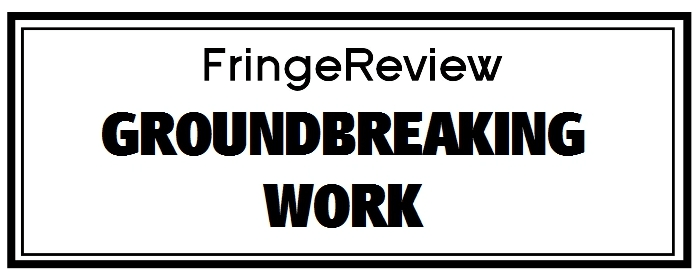Edinburgh Fringe 2025
Refuse
Just Bcoz Productions

Genre: Theatre
Venue: Assembly George Square
Festival: Edinburgh Fringe
Low Down
Refuse is an outstanding play that follows the story of Maks, a bin collector in Ukraine, as he moves through his neighborhood meeting various residents, including the Pavlenkos, Yelena, and his wife Valentyna. The play is inspired by the courage of Ukrainian refuse workers who continued their work despite the dangers brought by war.
It explores themes of community, survival, and loss under the growing shadow of invasion. .The production donates 50% of its profits to rebuilding homes in Ukraine.
Review
There are a number of reasons why this is outstanding and groundbreaking work.
The simplicity of the staging, with some inventive use of set design, effectively creates a street in Ukraine where the rhythm of life, such as the opening and closing of front doors and windows, conversations between neighbours, and the relentless collection of the rubbish, plays out. This is quickly established, rooted in normality, and yet with the menace of an impending war.
This minimalist approach allows the audience’s imagination to fill in the details, and in this case, we build a threatened country all around this tiny stage. Not just a theatrical one, but also the stage upon which we all perform in our daily lives.
A second reason lies in the acting, which mirrors this day-to-day, rhythmic coming and going and staying in our homes, where conversations with the garbage collector can become as significant as any Shakespearean romance or tragedy.
Our protagonist becomes the centrepiece around which other lives revolve. At times, their own lives are foregrounded, and at one point three characters on stage reveal their intersecting lives.
When the explosion comes, it is as much primeval as it is global, and as much human as it is comedic. The small theatre space facilitates the horror of noise that will make you hide under the nearest kitchen table, or perhaps seek safet in a large rubbish bin. There might be challenges here if this play does (and deserves to) transfer to larger theatre spaces.
Things build up and grow and the tension mounts, and yet this is done with ease and confidence both in the writing of the script and in the unfolding performances of the cast. All three performers work seamlessly together, and the small stage moves between street, bathroom and other interior spaces with smartly designed ease. Occasionally the accents, combined with fast-paced delivery of dark comedy one-liners and present tense storytelling, generate some unclarity but this will finesse as the run develops.
Audience members flinch and jump, judder and shudder. Yes, you do not need to know any further details from this review – you have to go and see it. It is a crescendo play and that is managed pitch perfectly.
This is important work at the Fringe, primarily because it doesn’t overplay itself. And though its heart is absolutely in the right place, it is not worn on its sleeve, but in caverns of menace and threat, and in exposing how the natural flow of things can be disrupted by the unnatural intentions of the darkest aspects of human beings. It has broken new ground in looking at a specific war which is all wars, the local story that is the universal story, written into a script that links the simple with the global effectively through art.
Refuse is cleverly and wisely metaphorical because the things we put in our rubbish bins are also our stories – sometimes ended, sometimes ongoing and unresolved. What we throw away can be the ending but also the opening of someone else’s story. The writer Kurt Vonnegut once referred to our lives as a line, and when we look back we will see all the stuff that we piled up, and when we look ahead we will see the empty space of possibility. What will we discard, and what will we take with us into the future? Yes, the things we discard that are nearest to us do not make up the whole picture, because sometimes war planes overhead can discard bombs right on top of our streets. Our refuse collector becomes a hero, not just because of his courage, but also because of his beautiful, eloquent normality.

























